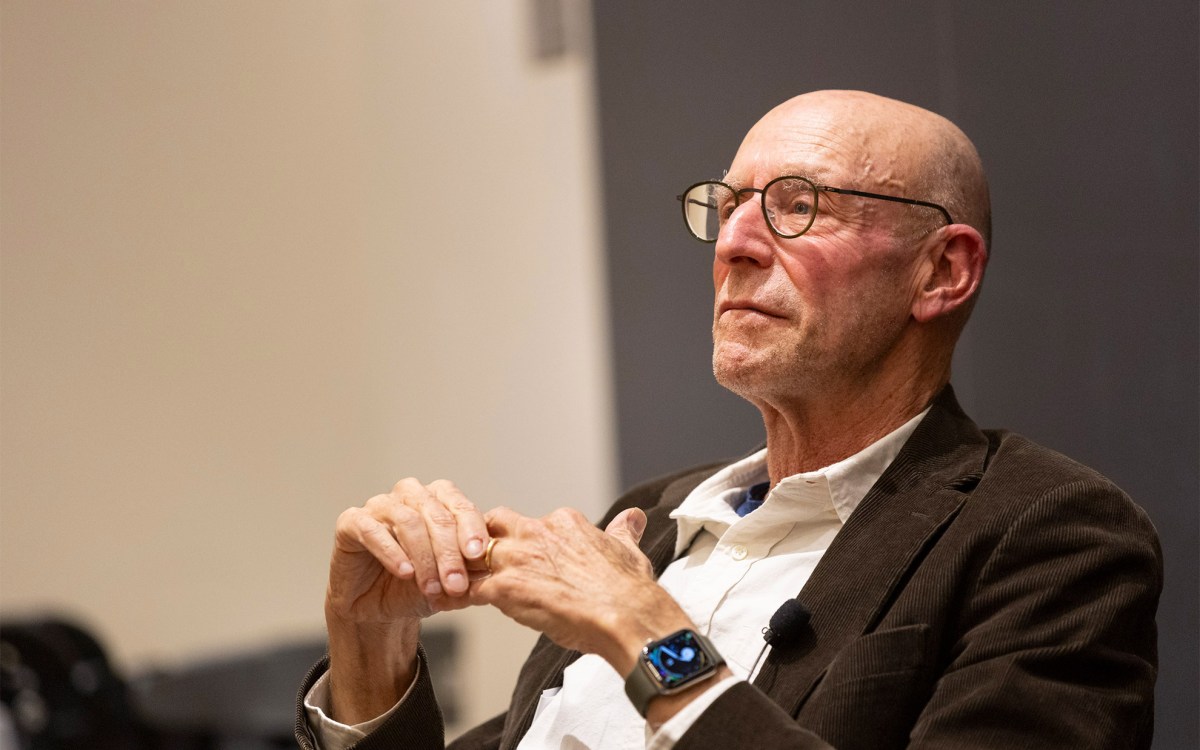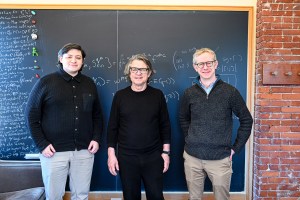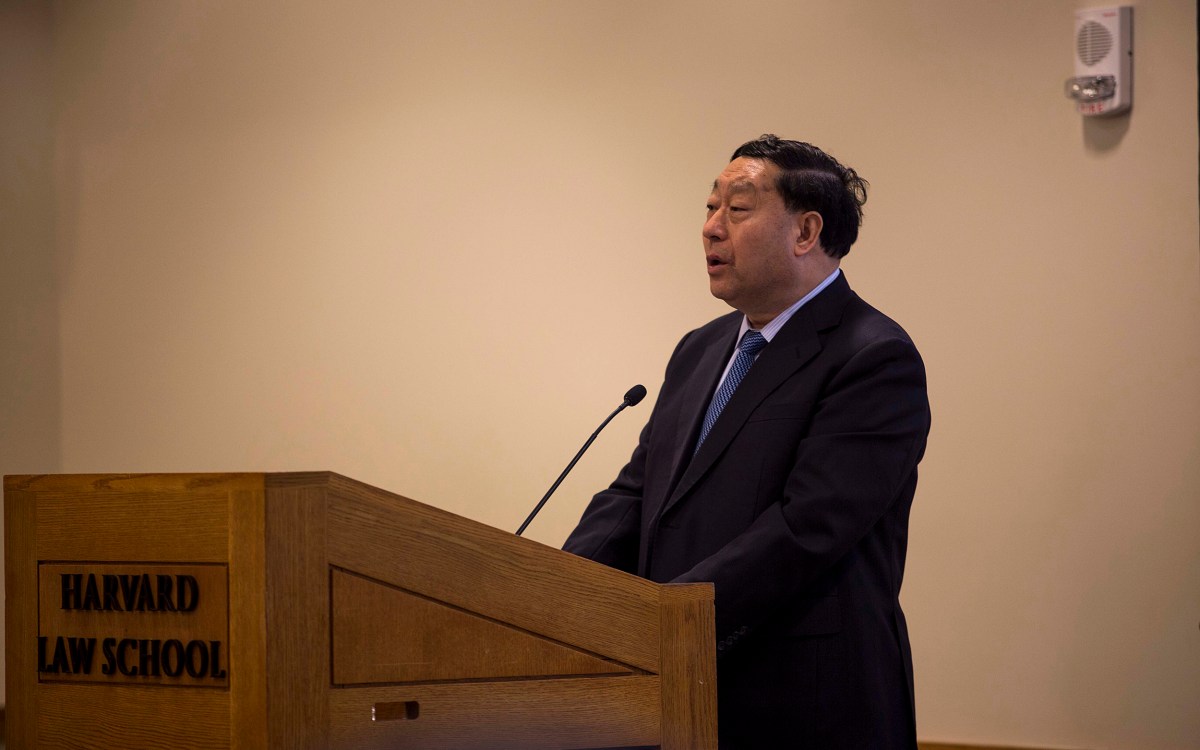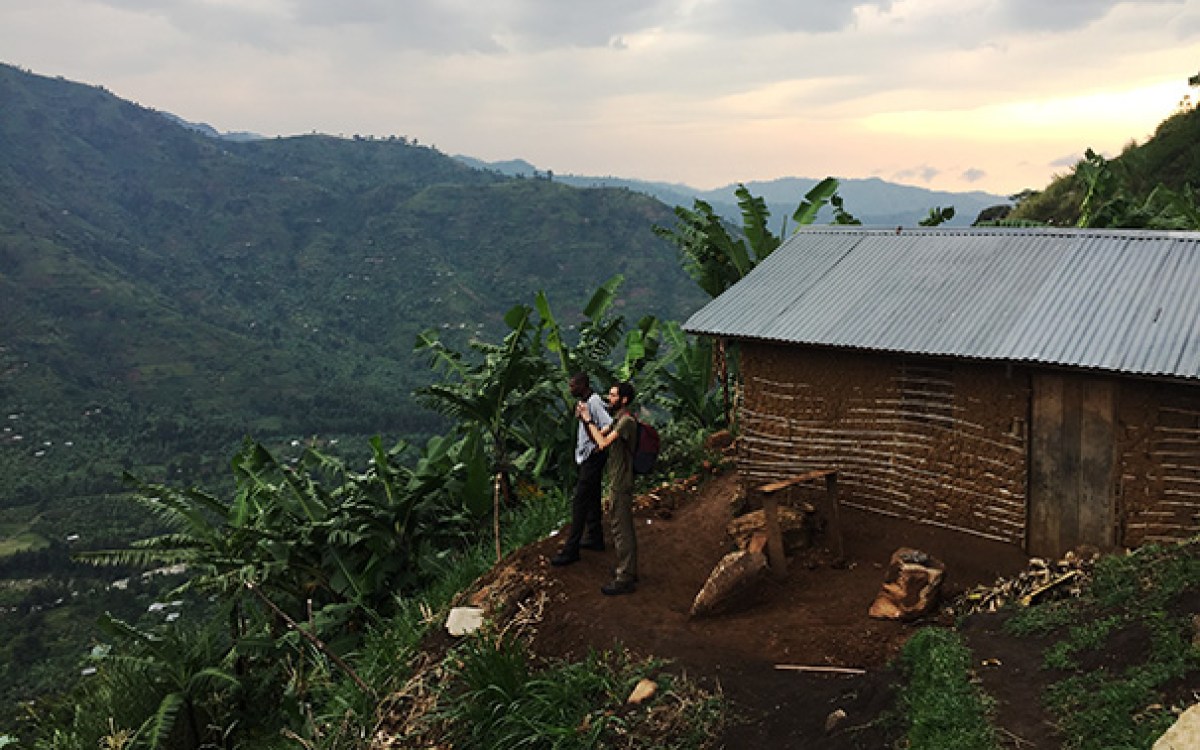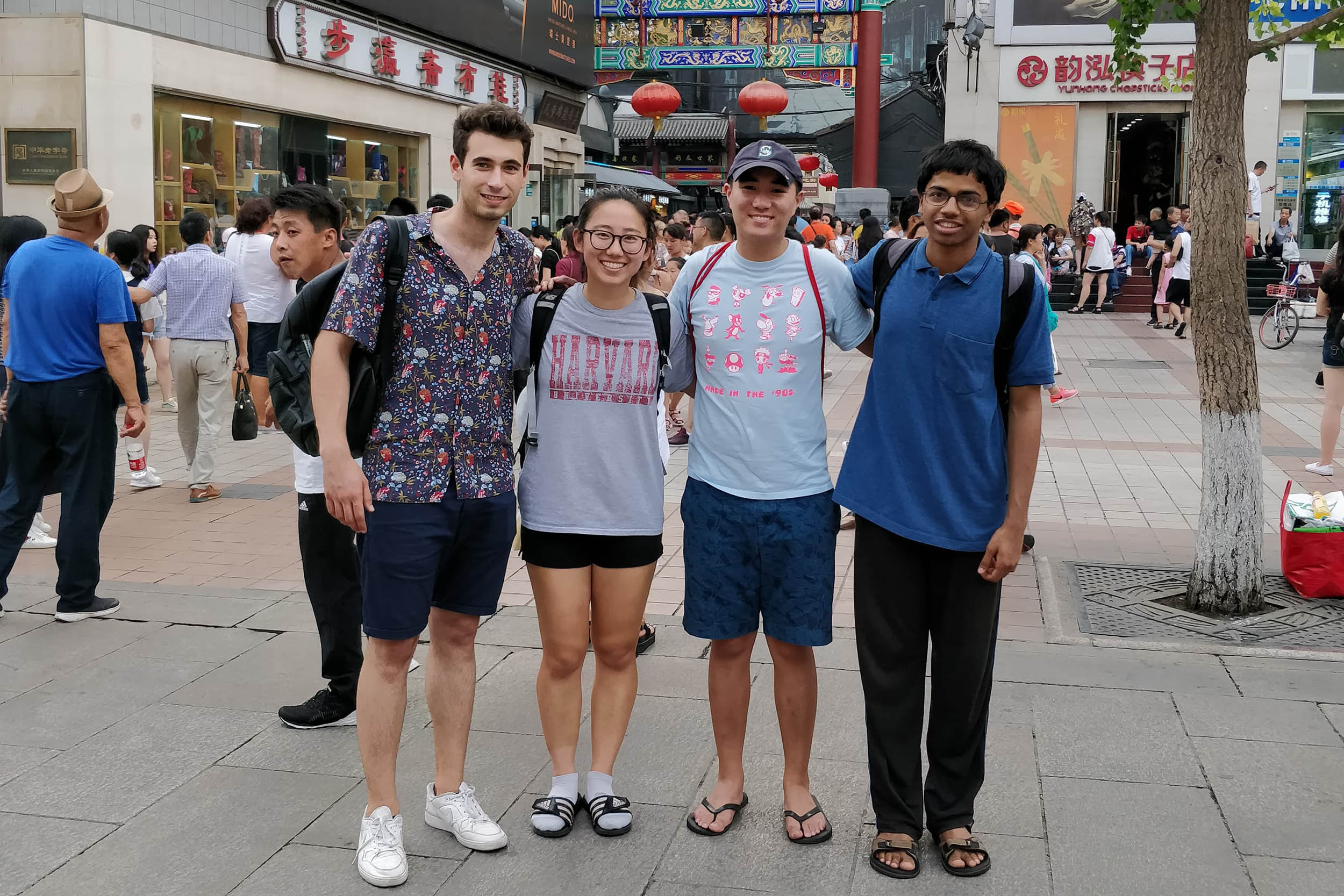
Harvard undergraduates Andrei Iliescu (from left), Irene Lu, Caleb Ren, and Adytia Mahadevan enjoy sightseeing on a cultural trip to Dong Hua Men Market.
Courtesy of Andrei Iliescu
Studying environmental issues in China
Harvard undergrads spent summer internships working in labs, touring country
A group of Harvard undergraduates spent the summer in China, working on solutions to an array of environmental problems ranging from examining ozone pollution’s effects on crops to analyzing household electricity demand to studying ways to remediate arsenic contamination of groundwater.
The summer internships extended from late June until mid-August and brought eight students to Beijing and Hong Kong, where they lived and worked at Beijing’s Tsinghua University and the Chinese University of Hong Kong. The internships were jointly sponsored by the Harvard China Project and the Harvard Global Institute.
China Project faculty chair Michael McElroy, the Gilbert Butler Professor of Environmental Studies, said the internships foster relationships between Harvard and institutions in China, as well as help students understand the international dimensions of global environmental issues.
“My hope is that our students will gain an important international perspective,” McElroy said. “When they graduate from Harvard, they’ll be citizens of the world. They will have a sense of at least some of the major problems that the world has to face.”
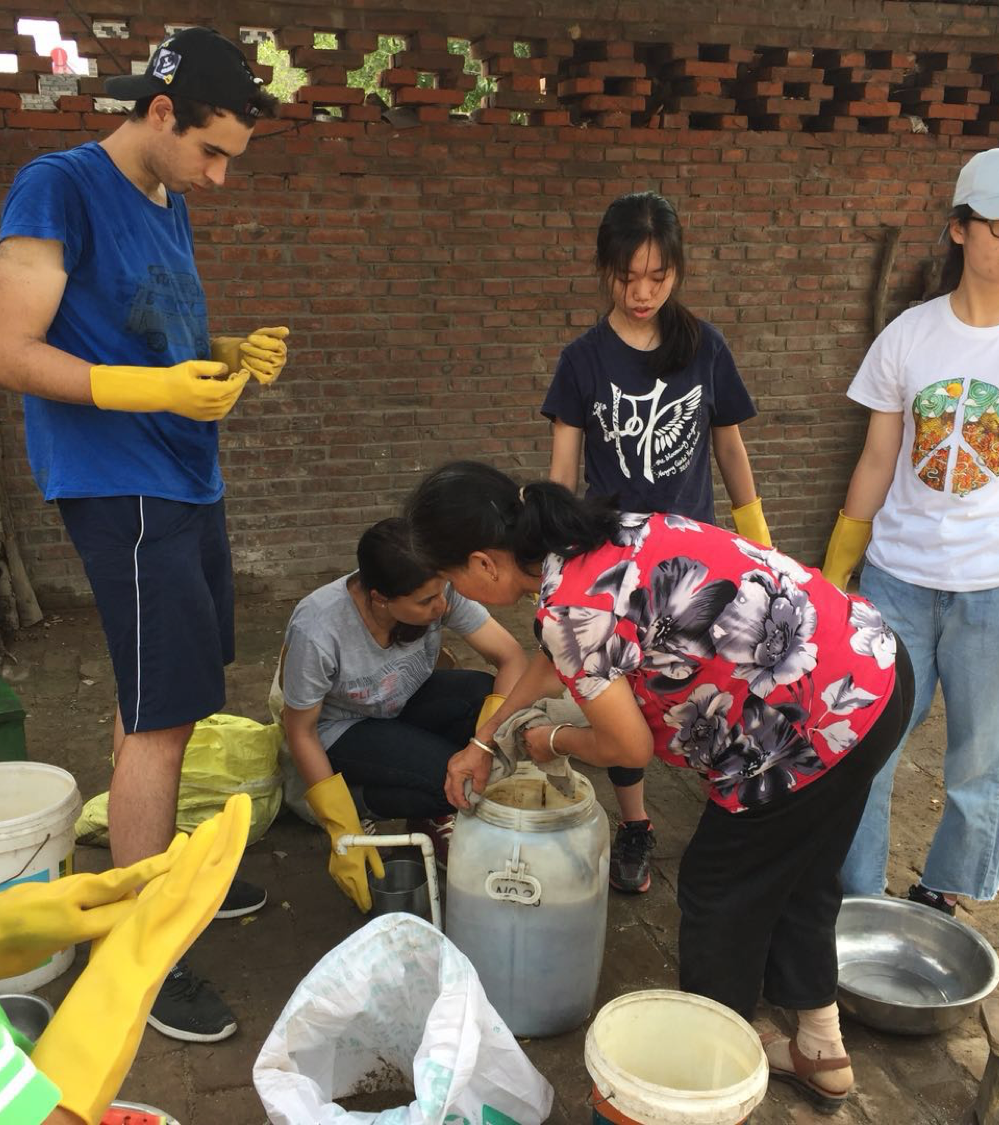
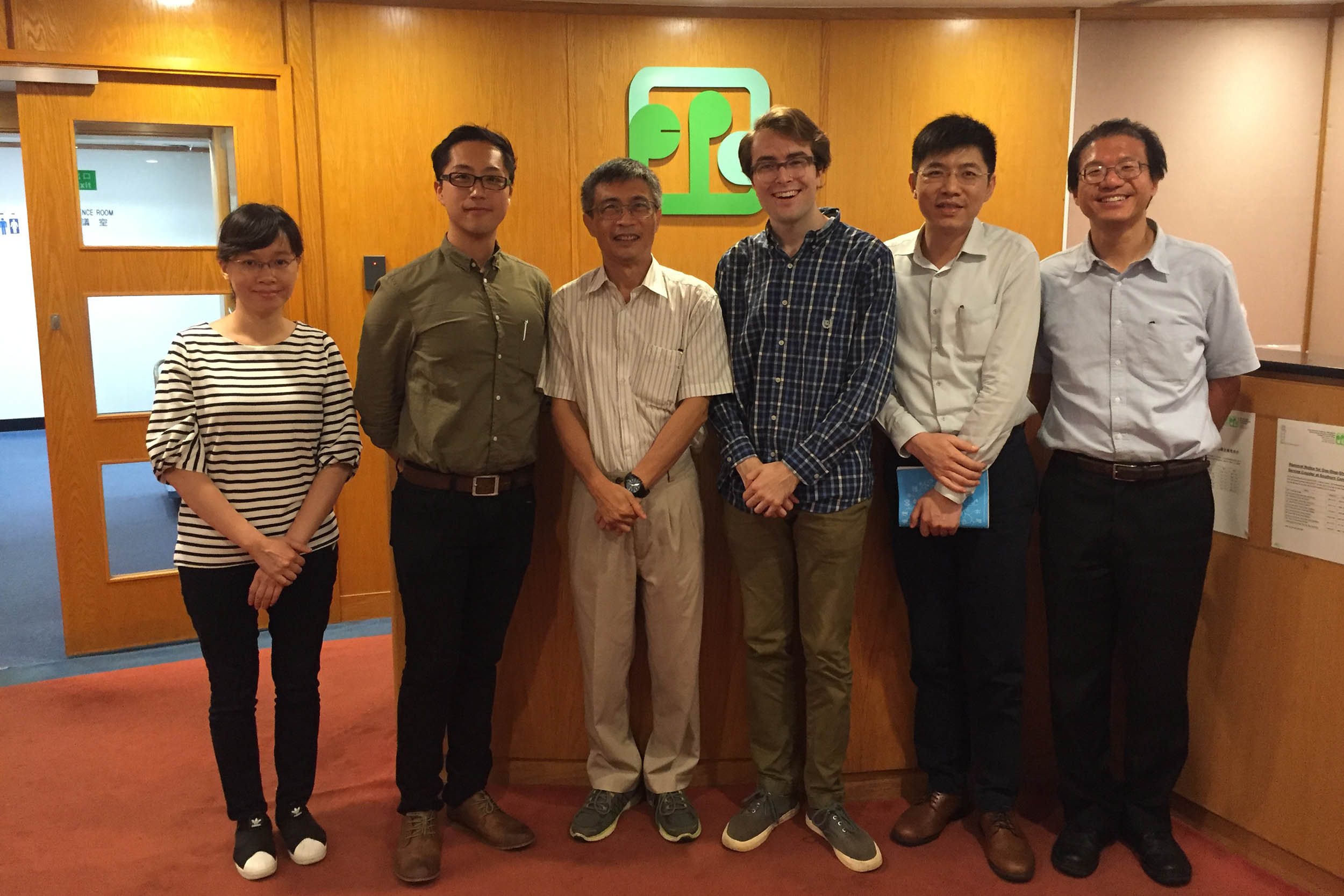
Students engaged with their host communities, helping villagers build sand filters in the countryside and meeting the air quality modeling team at the Hong Kong Environmental Protection Department.
Photo courtesy of (1) Andrei Iliescu; (2) Andrew Pendergrass
McElroy said it was clear decades ago that anyone who cared about the global environment would have to pay attention to China. Today, with the Chinese economy the world’s second largest, the nation’s global environmental importance is even more obvious.
“Even 20 years ago, it was clear that what happened in China would have global significance,” McElroy said.
The students lived in dormitories on the campuses and worked in the labs of faculty members, some of whom received degrees or conducted fellowships at Harvard.
Senior Katie Schluntz worked in the Tsinghua University lab of Associate Professor Jing Cao to develop a computer model that reflected household electricity demand, including variables such as the number of appliances in a household, the appliances’ ages, and local weather data to estimate heating and cooling needs.
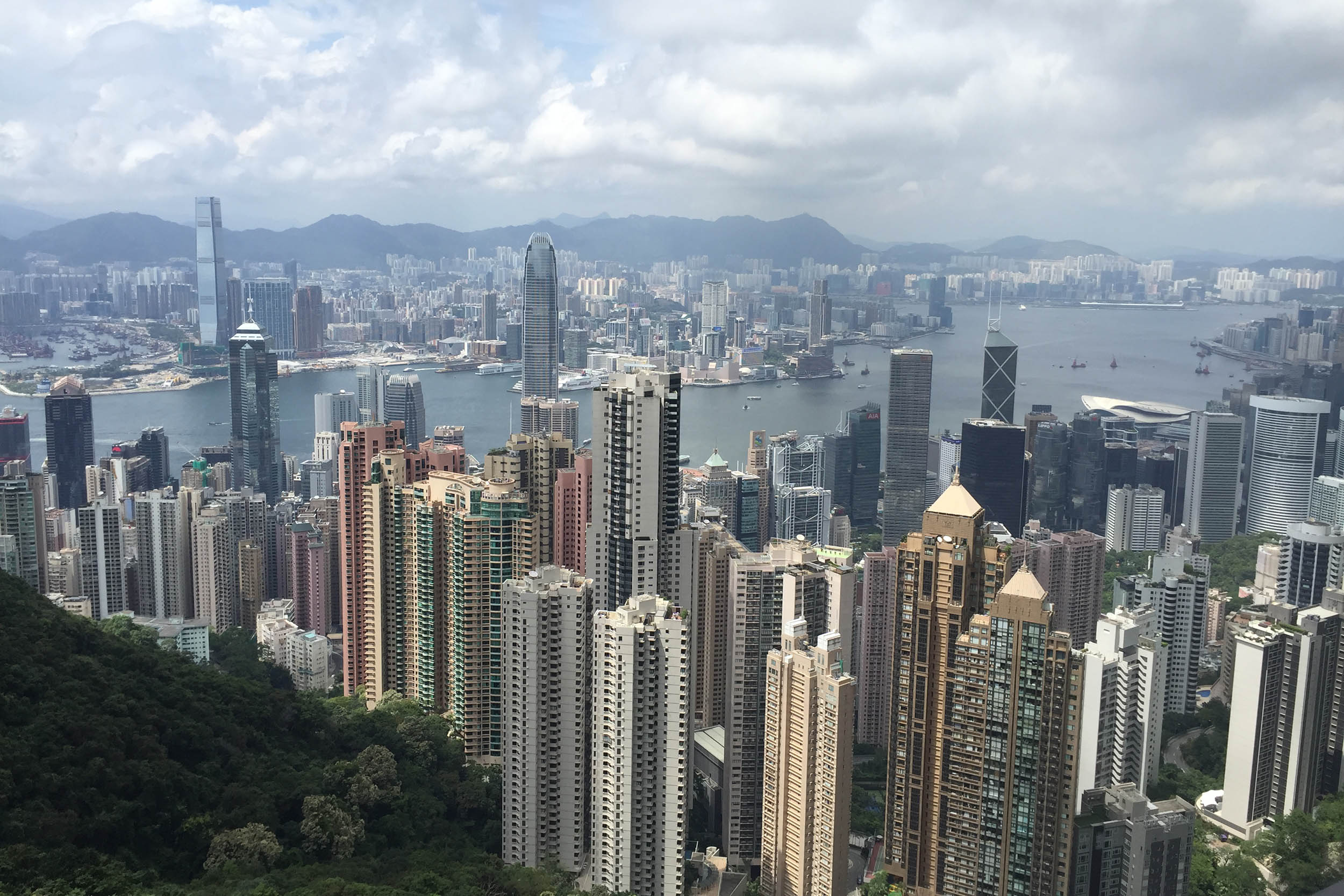
A view of the Hong Kong skyline from Victoria Peak.
Courtesy of Andrew Pendergrass
“A lot of policy is not just on the supply side, but on the demand side, so it’s really important to be able to understand how households are consuming this energy and how responsive they are to things like changes in the weather, especially now with climate change,” said Schluntz, a Quincy House economics concentrator.
Schluntz, who speaks Mandarin, began by translating 30 pages of survey data into English so she could better understand it. During the week, she worked side by side with Jing’s doctoral students, and on weekends got out and saw China. She visited Qufu, Confucius’ hometown, and climbed nearby Tai Mountain on a hike that started at midnight — and included hundreds of other visitors — in order to reach the summit by dawn.
“We hiked the whole time surrounded by a sea of people,” Schluntz said.
Andrei Iliescu, a junior chemistry concentrator from Adams House, worked in the lab of Tsinghua University Associate Professor Deyi Hou, who investigates soil and water pollution with an eye toward remediation. The project involved arsenic contamination of groundwater that feeds residential wells.
Chi Lin Nunnery gardens.
Courtesy of Andrew Pendergrass
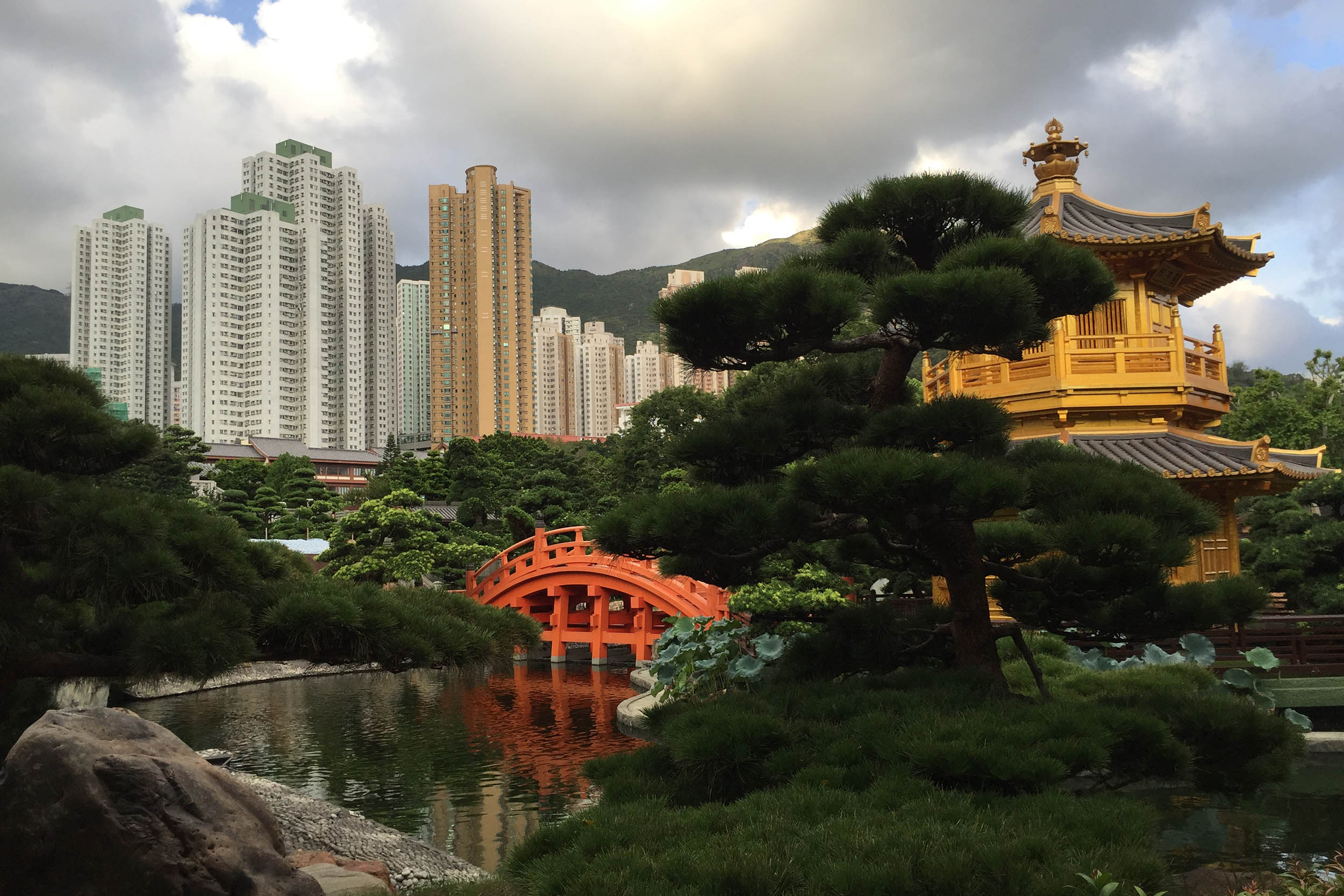
Much of the contamination, Iliescu said, stems from natural geological factors common in various parts of the country, though some is because of industrial pollution. Iliescu conducted a literature search to compile a review article on arsenic contamination and strategies to fight it. He also traveled to a rural village with other students in Hou’s lab to build residential arsenic filters. Outside the lab, Iliescu visited the Great Wall and traveled to Shanghai.
“I really enjoyed what I was doing and the [broader] experience there,” Iliescu said.
Drew Pendergrass, a junior physics and math concentrator, worked in the lab of Assistant Professor Amos Tai at the Chinese University of Hong Kong on a project to understand how the severity of ozone pollution changes with different atmospheric variables.
Pendergrass was the only Harvard intern not in Beijing, and lived with other international students in a dormitory at the Chinese University of Hong Kong. Outside the lab, the highlights included meeting with officials of the Hong Kong environmental protection office and a side trip to Thailand.
Pendergrass said the experience gave him a taste of the complexity of environmental problems — and of the math that might be used to help solve them.
“It’s encouraging there’s so much interesting work to be done to figure this out,” Pendergrass said.
